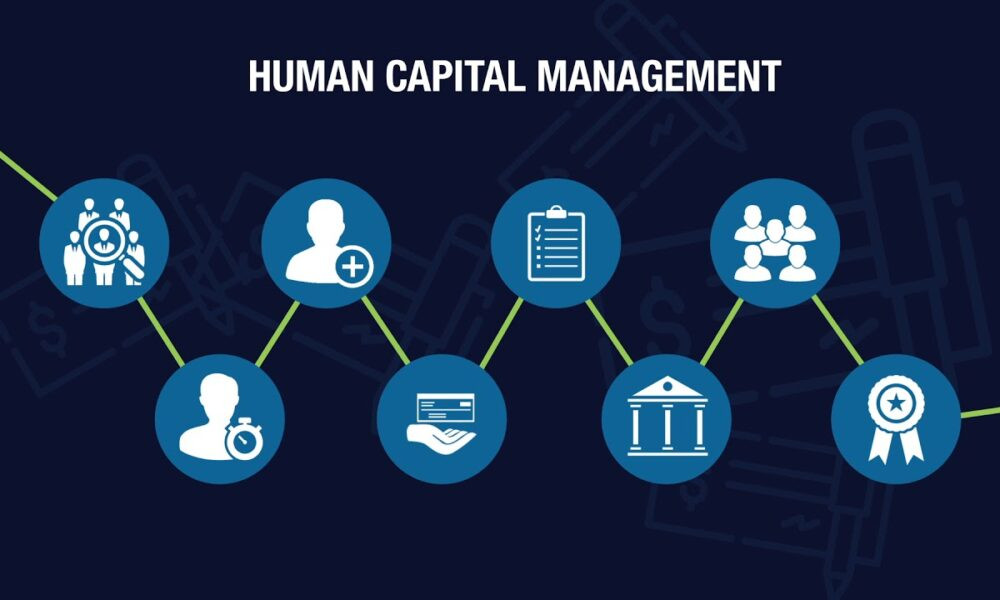The Human Capital Management Market: A Booming Industry Driven by Technological Advancements and Changing Workforce Dynamics
The global market for Human Capital Management (HCM) is experiencing a surge in growth, projected to reach US$35.0 Billion by 2030, driven by a combination of factors that are reshaping the modern workplace. This article explores the key drivers behind this growth, examining the role of technology, changing work models, and the increasing emphasis on diversity and inclusion.
Factors Driving the Growth of the Human Capital Management Market
The rapid evolution of the HCM market is propelled by several key factors:
The Rise of Remote and Hybrid Work Models
The COVID-19 pandemic accelerated the adoption of remote work, and many organizations are now embracing flexible work arrangements as a permanent feature. This shift has created a need for robust HCM solutions that can effectively manage geographically dispersed workforces. HCM systems provide tools for virtual onboarding, performance tracking, collaboration, and employee engagement, ensuring that remote employees remain connected and productive. The need to manage remote teams effectively has become a significant driver of HCM market growth.
The Growing Importance of Data-Driven Decision-Making
Data analytics has become an integral part of modern HCM systems. Organizations are increasingly recognizing the value of workforce analytics to gain insights into employee performance, productivity, and engagement. These data-driven insights empower HR leaders to identify trends, address potential issues proactively, and optimize workforce strategies. Predictive analytics, in particular, plays a crucial role in forecasting future workforce needs, planning for succession, and identifying employees at risk of leaving the organization.
The Increasing Focus on Diversity, Equity, and Inclusion (DEI)
Organizations are placing a greater emphasis on building diverse and inclusive workplaces. This commitment is reflected in the growing demand for HCM solutions that support DEI initiatives. These solutions help companies attract, retain, and develop a diverse workforce, ensuring that all employees have equal opportunities for growth and success. By fostering an inclusive work environment, organizations can unlock the full potential of their talent pool and gain a competitive advantage.
How Technology is Transforming Human Capital Management
Technological advancements are revolutionizing the way organizations manage their human capital. Artificial intelligence (AI) and machine learning (ML) are automating tasks, providing predictive analytics, and enhancing decision-making in various aspects of HCM:
AI-Powered Recruitment
AI-powered recruitment tools are transforming the hiring process. These tools can screen resumes, identify top candidates based on specific criteria, and even conduct preliminary interviews, saving time and reducing bias. This efficiency allows HR departments to focus on more strategic tasks, such as candidate engagement and building relationships with top talent.
AI-Enhanced Performance Management
AI is also being integrated into performance management systems to analyze employee productivity, engagement, and development needs. This data helps managers provide personalized support, offer targeted interventions, and create development plans tailored to individual employees. This data-driven approach leads to more effective performance management and helps organizations develop their workforce more strategically.
Social Collaboration Tools
Social collaboration tools are increasingly integrated into HCM platforms, fostering better communication and teamwork within organizations. These tools enable employees to collaborate on projects, share feedback, and stay connected with their teams, even when working remotely. Social collaboration features not only enhance productivity but also contribute to a more inclusive and engaging work environment, boosting employee satisfaction and retention.
Why Human Capital Management is Critical for Organizational Success and Workforce Optimization
HCM plays a crucial role in improving employee engagement and satisfaction. Research consistently shows that engaged employees are more productive, have higher job satisfaction, and are less likely to leave their jobs. HCM systems enable companies to track employee performance, gather feedback, and identify areas where employees need support or recognition. Performance management tools help managers set clear goals, provide regular feedback, and identify opportunities for growth and development. This focus on continuous improvement fosters a culture of learning and innovation within the organization.
HCM also plays a crucial role in ensuring compliance with labor laws and regulations. Employment laws are complex and constantly evolving. Non-compliance can lead to costly fines and legal issues. HCM systems automate tasks such as payroll, tax filings, and benefits administration, ensuring that organizations adhere to all applicable labor laws and regulations. This automated approach reduces the risk of non-compliance and helps organizations avoid legal issues that could damage their reputation and bottom line.
The Future of Human Capital Management: A Focus on People-Centric Solutions
The HCM market is poised for continued growth as organizations seek to optimize their workforce strategies and maintain a competitive edge. The future of HCM will focus on people-centric solutions that prioritize employee well-being, empower employees, and foster a culture of innovation and collaboration. These solutions will leverage emerging technologies, such as AI, blockchain, and virtual reality, to create seamless and personalized experiences for employees, promoting a sense of belonging, purpose, and growth within the organization.
As businesses continue to navigate the challenges of a rapidly changing world, human capital management will remain a critical tool for achieving operational efficiency, driving innovation, and ensuring long-term success. By investing in robust HCM solutions, organizations can unlock the full potential of their workforce and thrive in the years to come.

















